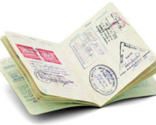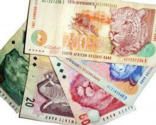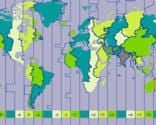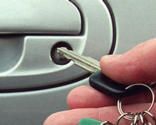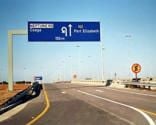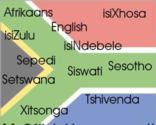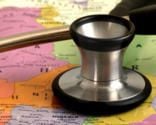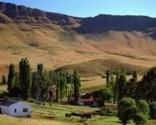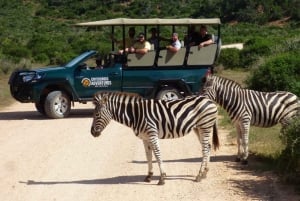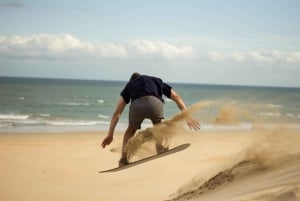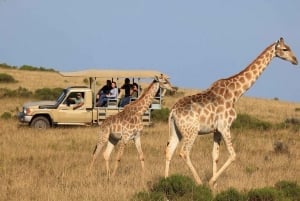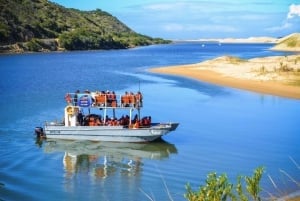Know Before You Go
Our Eastern Cape ‘know before you go’ section has been designed to give you some useful tips to prepare you for your holiday to South Africa’s Eastern Cape. Regardless of your destination, whether you are heading to the beautiful Port Elizabeth beaches or the vast Baviaanskloof wilderness, our Eastern Cape guide should offer some helpful hints.
Travel Insurance:
When visiting South Africa and the Eastern Cape Travel insurance is essential. There is not really a great public health system in South Africa and most hospitals and doctors are private, meaning that medical treatment can be expensive if required. We would recommend purchasing a comprehensive travel insurance policy before you leave for the Eastern Cape that covers you for a range of eventualities – it’s always better to be covered just in case.
Vaccinations:
There are no compulsory vaccinations required to visit South Africa’s Eastern Cape and the area is also malaria-free, making it an excellent holiday destination for anyone wishing to go on safari without having to take malaria tablets. Your local health board may however recommend certain vaccinations before visiting South Africa and we would recommend checking with your family doctor before your trip.
Packing – what to bring:
Essentials for any trip to the Eastern Cape are a camera to snap all the excellent scenery and
wildlife and of course swimwear and a good sun screen for all those award winning beaches (although there are also plenty of places you can buy this too).
South Africa’s Eastern Cape is a pretty laid back region and so for those on holiday casual attire is all that is needed in terms of clothing.
Restaurants and bars tend to be pretty casual and you are unlikely to come across many places with a dress code.
During the Eastern Cape’s summer months (Dec-Mar) you will find that the
weather is generally pretty warm – usually in the mid to late twenties Celsius and people tend to wear shorts and t-shirts and flip flops. It is worth packing a light sweatshirt or two for summer evenings and if you want to spend time sitting out at night as it does tend to get cooler, especially along the coast in places such as Port Elizabeth and Jeffrey’s Bay. A hat for protection against the sun is definitely recommended.
In-land the Eastern Cape can get pretty hot in summer, especially in the desert areas of the Baviaanskloof and Karoo and again it cools down at night and in winter, so layers are a good option as well as a good pair of hiking shoes for the Baviaanskloof. If you are visiting the
Eastern Cape in winter you will want some warmer clothes, although winters tend to be mild in comparison to northern Europe or North America, you will probably find you will need a few sweatshirts and a comfortable jacket.
The only places where you may need slightly more up-market attire are if you plan to play some golf in the Eastern Cape or you are visiting the Eastern Cape on business. We would advise checking with individual golf clubs in advance of any dress codes they may have. Eastern Cape business attire is generally smart casual but will depend on who you are meeting.
Plugs:
Plugs in South Africa are usually 3 large round pin plugs so you will in all liklihood need an adapter for any electrical equipment you bring.
Visas:
Depending on your nationality and purpose of your visit to South Africa’s Eastern Cape you may or may not need a visa. Many European and southern African nationalities as well as several Asian and American nations do not require a visa in advance if visiting South Africa for less than 90 days as a tourist. For accurate visa requirements for your nationality we would recommend checking with your local South African Embassy or the
Home Affairs Department.
Getting around – plan before you go:
South Africa is an easy country to get around, however it is worth making your travel arrangements before you go as distances can often be vast and public transport is not very common. See our
getting around section for more information on travelling around the Eastern Cape.
At the Airport:
The arrivals procedure is pretty slick at most South African airports and if you are arriving into either
East London or
Port Elizabeth airport, you are likely to have already completed any customs requirements at one of the larger international airports at Johannesburg, Cape Town or Durban, so you will not need to go through a passport check again. There are plenty of car hire desks at both airports and you will find airport taxis outside the terminal, although we would recommend you arrange a transfer in advance with your accommodation if you do not plan to hire a car. Plenty of
Port Elizabeth accommodation, Addo accommodation and other Eastern Cape accommodation will gladly arrange airport transfers.
Taxis:
A taxi in South Africa is usually a mini bus that drives around and picks several people up along a designated route - they are a little like a bus service and generally take people from township areas to work. These taxis are not very widely used by visitors to towns in the Eastern Cape and private taxis can be difficult to find. If you are looking to get somewhere and don’t want to drive yourself we would advise booking transport through your hotel who will use a reputable firm and have a range of options.
Tipping:
Restaurants: Tipping is pretty customary in the Eastern Cape and there are many excellent restaurants, cafes and bars where service is good and deserving of a tip. We would recommend a tip of 10-15% when eating out or when receiving table service.
Car Guards: Something quite unique to South Africa is the car guard and many foreign visitors are taken by surprise at their first encounter with a car guard. Many areas where you can park your car – public car parks, private car parks and roadsides will have a car guard. This person will watch your car for you while you are away from it and it is customary to give them a small tip when you return to your vehicle. They will usually make eye contact with you when you arrive and then expect some money on your return. 5 Rand is usually a good amount to tip the car guards.
Petrol stations: Petrol stations in South Africa are not self-service as they are in much of Europe. General practise is to drive up to the pump and an attendant will fill your car, offer to check your oil and wash your windscreen. Payment is made to the attendant – usually in cash although card payments are possible - and once they return with your change it is usual to tip petrol station attendants - 5 Rand or so is a fair amount.
Currency and Money:
The currency of the Eastern Cape is the South African Rand (ZAR). One Rand is made up of 100 cents although prices are now rounded up to the nearest 5 cents. Rand notes are R10, R20, R50, R100 and R200, although the R200 note is not very common. Exchange rates can fluctuate quite frequently so check the current exchange rate before you draw money.
ATMs are widespread in cities, towns and petrol stations in the Eastern Cape and will take most cards. Credit cards are also very widely accepted in
shops,
restaurants, cafes and bars. We do recommend exercising caution when drawing money at ATMs.
Opening Hours:
Shops and banks in Eastern Cape towns tend to close at around 5pm and many will be closed on Sundays; in larger towns and cities such as
Port Elizabeth and
East London or in some of the Eastern Cape’s many shopping malls they may remain open a little longer. Restaurants and bars in bigger Eastern Cape towns are usually open until late (Midnight) and there will often be places to party later if you choose, but in the more rural areas your options will be limited.
Languages:
South Africa has 11 official languages and you are likely to hear a few of them spoken on your trip to the Eastern Cape. Most people will speak very good English even if they don’t address you in that language to start with, so answering or asking questions in English is likely to get you understood. Signs are usually in English and Afrikaans and it is not uncommon to hear and be spoken to in Afrikaans in the Eastern Cape, you will probably also hear Xhosa being spoken by people.
What to expect:
The Eastern Cape has lots of modern towns and cities and you will find all western amenities on hand. Shops are well stocked with modern conveniences and you will find a great selection of food and drink both in supermarkets and restaurants and bars – in fact the wine is very reasonably priced by European standards. Poverty is an issue in South Africa and many people live in townships where facilities are limited and living space is cramped. An organised township tour is a great way to see this side of South Africa and stay safe. South Africa is an amazing country and provides an interesting amalgamation of African culture and first world convenience. Incredible scenery, friendly, lively people, wildlife, beaches and adventure all await you in South Africa's Eastern Cape.
Safety in the Eastern Cape:
People are often worried about safety when visiting South Africa. For some guidance on how to keep safe on your Eastern Cape holiday see our
safety section.
Time zone:
South Africa's Eastern Cape is on GMT +2. This makes it a great destination for Europeans as there is almost no time difference and so no jet lag!
Dialling codes:
The country dialling code for South Africa: +27. You then remove the '0' from the beginning of the number.
We hope you have a wonderful trip to South Africa's Eastern Cape and enjoy all this wonderful region has to offer from excellent Eastern Cape accommodation to great restaurants and things to do. For more information on where to go and what to do in the Eastern Cape explore our Eastern Cape Regional Overview and Eastern Cape Travel Guide.





